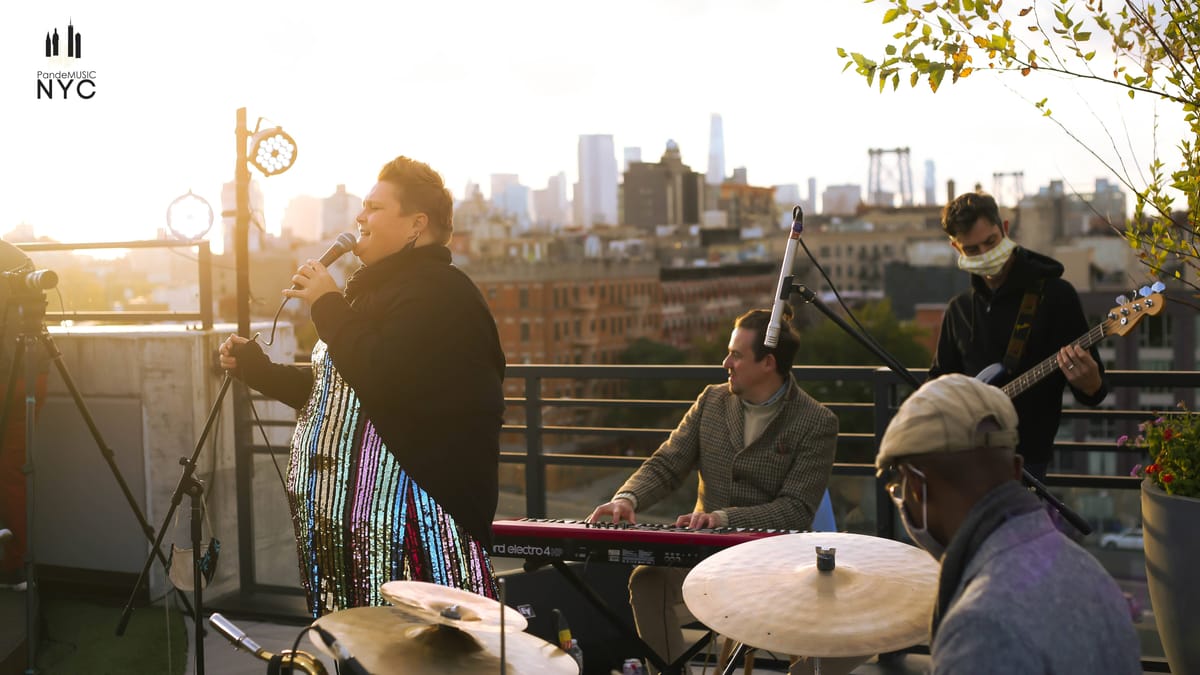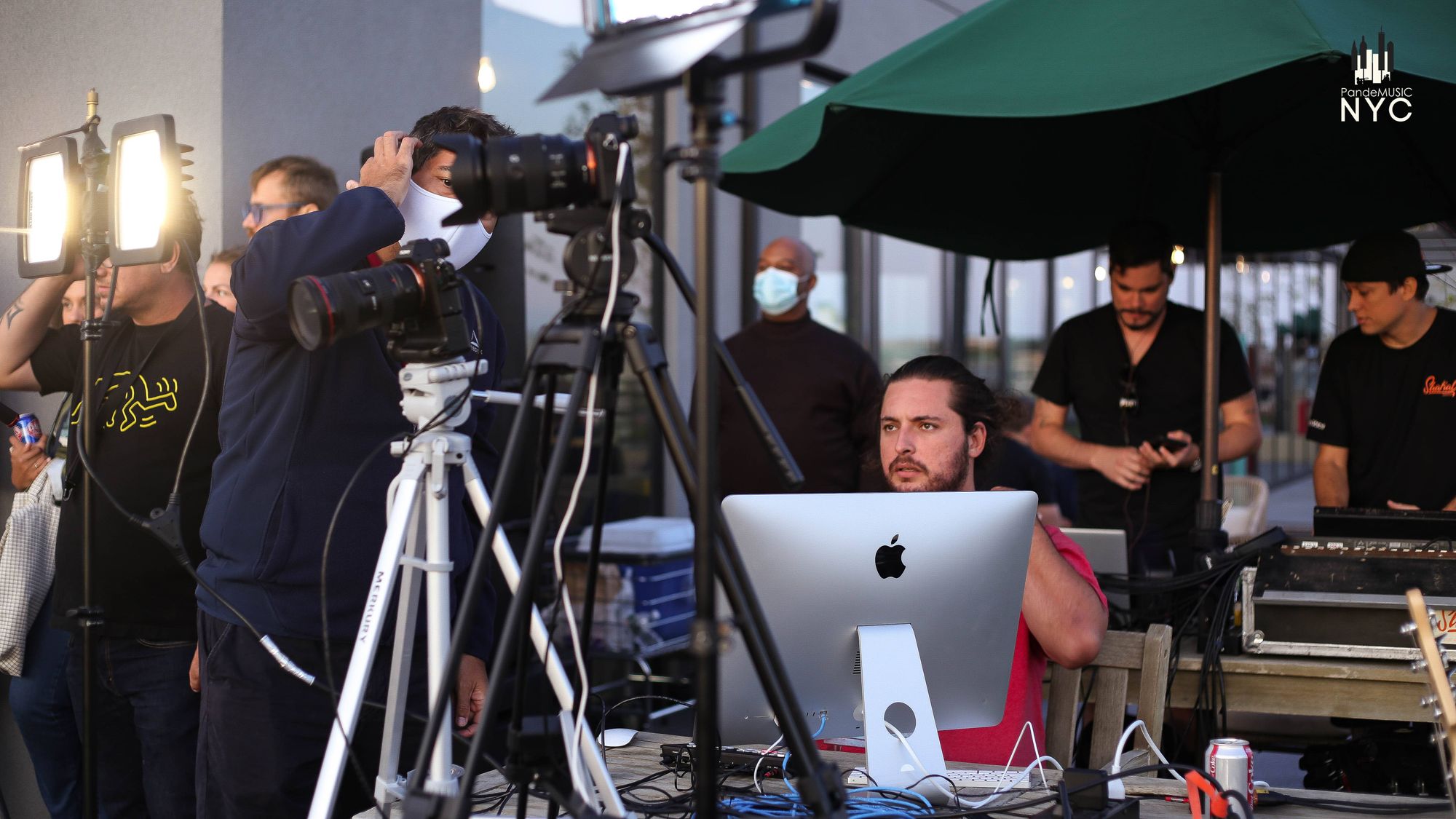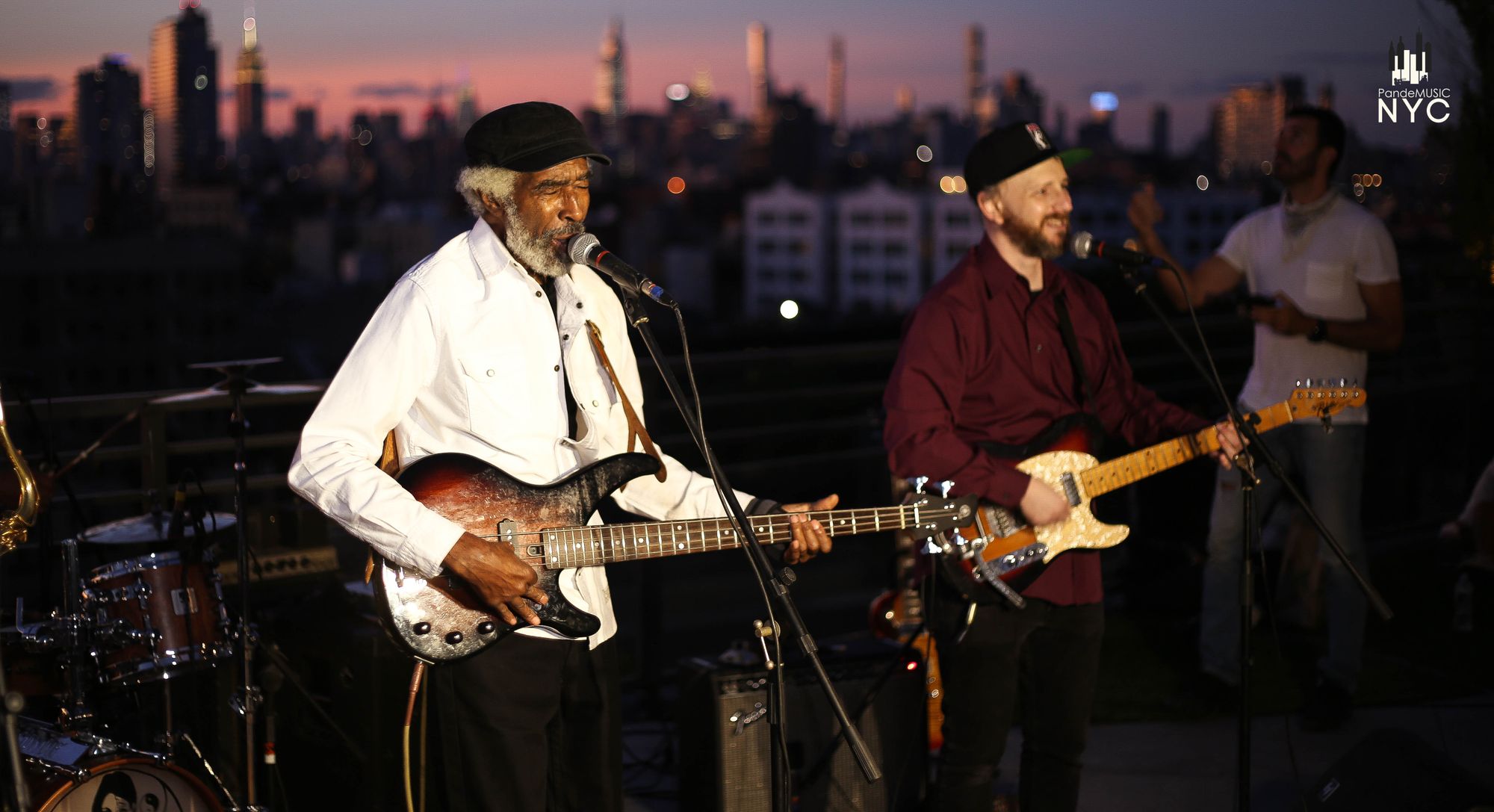Pandemusic Concerts Offer Musicians A Payday—and a Chance to Reconnect


When the coronavirus pandemic overtook New York, Josue Caceres’ gigs—and some of his friends—started to disappear.
Caceres is a sax player, originally from Brazil, who moved to Brooklyn in 2015 to pursue his music career. But the pandemic shuttered bars and concert venues, and as the weeks turned into months, Caceres, 37, found his musician friends and colleagues were leaving the city he had come to call home.
“Making no money in New York,” he said. “It’s hard to survive here.”
So last summer, Caceres launched Pandemusic, a virtual concert series funded by donations and filmed mostly on the roof of the Williamsburg apartment building where he lives with his wife and daughter. Pandemusic offers the local musicians, videographers and sound engineers who participate not just a paid gig, but also a rare opportunity to reconnect after a long, difficult period of separation.
“Most of them were stuck at home, not playing with other musicians, not sharing the stage,” Caceres said. “Being on a stage performing with friends and also getting paid for that, for me, was like a dream come true.”
Pandemusic has organized 17 concerts since it launched in July, and raised over $60,000 in wages for participants. Caceres provides a sound system and backline gear for musicians to use, and the live-streamed concerts are well-produced, multi-camera affairs that double as a highlight reel for performers looking to showcase themselves in a group setting.
“When we get back to playing for real and people ask, ‘can we see the band,’ I have three hours of video that I’m proud to show because the performances are good,” said Booker King, a bass player who has participated in two Pandemusic shows and who has previously played with giants like Paul Simon and Santana. “It’s a tool to get other work.”

Each Pandemusic concert costs between $2,500 and $3,000 to produce, Caceres said. Musicians get paid between $150 and $250 for the gig, depending on the size of the band and the donations Pandemusic has managed to collect. It’s not much, but it’s something, and frankly, Caceres said, it’s more than what many bars and clubs offered before the pandemic.
“A lot of times musicians are taken advantage of,” he said. “I’ve seen a bunch of venues asking musicians to bring all the people, to do all the marketing, and you don’t get paid for that.”
At first, donations came mostly from Caceres’ more financially stable friends. Some artist contacts also donated works that he sold to generate funding. Then, as the performances were posted online, donations from elsewhere began to come in. When the weather and case counts allowed it, Caceres also sold a few dozen tickets to neighbors in his 120-unit building so they could watch the shows in person.
(Caceres’ landlords have offered tacit, if not explicit, permission to use the building’s roof deck. The property managers are observant Jews and most of the performances are on Saturdays, Caceres says, so “they never say anything.”)

The shows have offered those lucky attendees a rare chance to enjoy live music in an intimate setting. But perhaps no one has enjoyed it more than the musicians themselves.
“I was exhausted after because it was the first gig I had played in months,” said Booker, 63. “But it gave us back a little bit of what we lost, and that was kind of priceless.”
Initially, there were too few donations for Caceres to pay himself, though he now gives himself a wage for his production labor. But he says he makes no other profit from the effort.
Now, Caceres is looking for sponsors to make the project more sustainable. He’s also received support from some other friends in high places: Silverstein Properties. Caceres partnered with the developer on an art installation in 2019, and when the weather got too cold for outdoor performances, contacts there let him use a vacant space near the top of One World Trade Center.
That’s resulted in shows with some pretty spectacular views. Still, Caceres says his neighbors have asked him when the concerts will return to their roof, and he is excited to do so when the weather allows. But for now, the rest of the world will have to continue to enjoy the performances from home.
“I’ve been getting messages from performers from Philly and Connecticut who want to do it,” Caceres said. “But for now I’m most concerned about the people in New York. Maybe in the future we can include some outsiders.”




